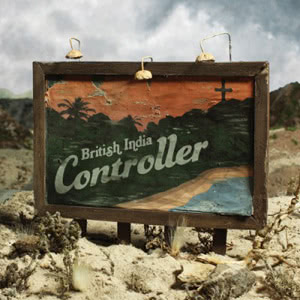Controller is the fourth studio album of Melbourne rock outfit British India, and their endearingly raw garage sound still manages to permeate through the layers of their latest rock’n’roll offerings, but it’s when they change things up that it begins to get interesting and break the mould.
As soon as the first electric guitar riff blasts out of the amp on album opener Plastic Souvenirs, it appears the band’s unabashed brand of rock is as stoic as ever and is reminiscent of the magic that earned them acclaim with 2007’s Guillotine.
The album continues on that same, powerful note with fast-paced drum beats, exhilarating guitars and stretched vocals dominating the aural proceedings.
It isn’t, however, until the band turns it down a notch on a quarter of the way through that the album has its first memorable moment.
Lead single ‘I Can Make You Love Me’ is the most exposed, emotional track on the record. It’s the band’s finest display of lyrical potency, and as Declan Melia belts out each repetition of the song’s title, it becomes poignantly clear that he’s begging, rather than singing.
When the tempo slows down and layered electric guitars are traded for more intimate acoustics that British India sound their best.
While the more bombastic songs like ‘Summer Forgive Me’ are recklessly fun, the components of the band’s sound shine when stripped down and they’re not overlapping in a harsh cacophony.
Further showing that British India often sound their finest when the tempo slows down and electric becomes acoustic, album closer ‘Crystal’ provides a refreshingly unexpected note to close the album.
Patient builds and tender piano keys aren’t something you’d find in the band’s garage sound, but they’re used expertly on the final track.
Melia’s vocals are soft, and even border on lulling, as his vocals gently weaves between sporadic piano keys and the double-kick drums.
If ‘Crystal’ is an indication of the direction on British India’s sonic compass for the future, let’s hope they keep walking north.

































